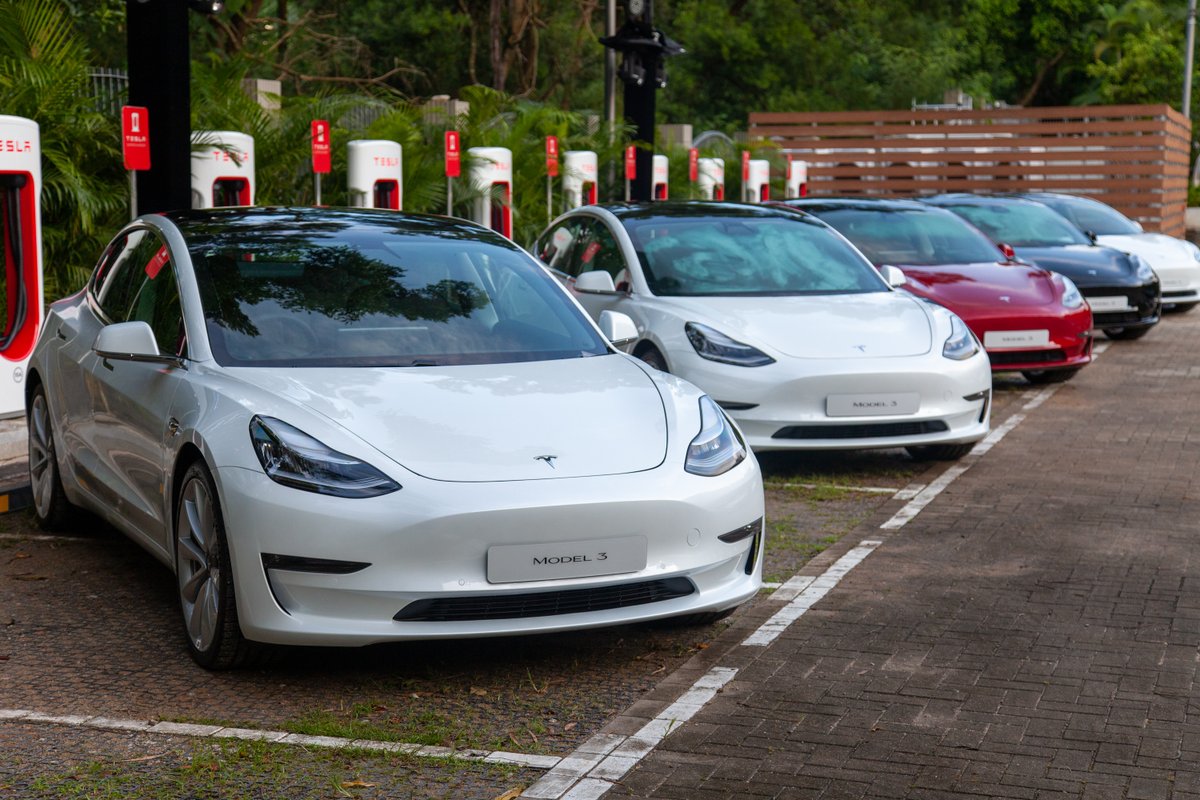
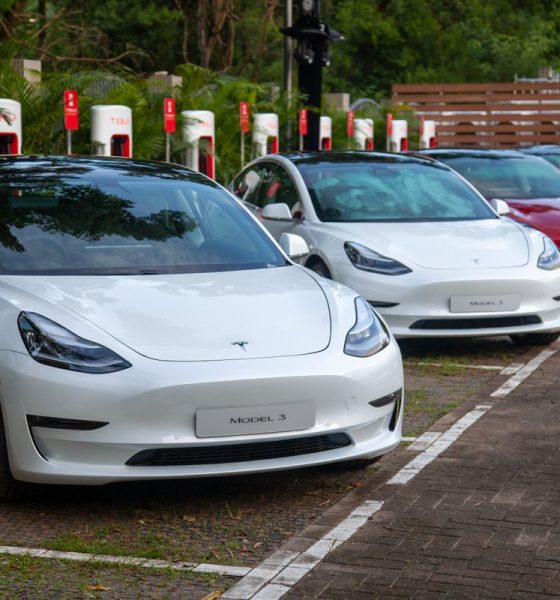
Investor's Corner
Tesla has Morgan Stanley taking bullish and bearish stances in China
Tesla’s (NASDAQ: TSLA) automotive operation in China has Morgan Stanley analysts taking bullish and bearish stances. A new note from the Wall Street firms indicates short-term growth and possible electric vehicle sector domination. However, long-term perspectives align with past Morgan Stanley outlooks that hint toward Tesla’s decline and subsequent inferiority in the Chinese market.
Following the news of Tesla vehicles being banned in military or government facilities late last week, Morgan Stanley released a new note that revealed several important metrics that could be affected by the ban. The firm’s short-term outlook seems bullish, especially as it highlights the advantages Tesla holds financially in China and its popularity with Chinese car buyers, who have flocked to the company’s all-electric vehicles since first being delivered in early 2020.
Tesla and China: 7 Thoughts | Morgan Stanley$TSLA pic.twitter.com/YxuJWFWuWK
— David Tayar (@davidtayar5) March 22, 2021
“We estimate well over 50 to 60% of Tesla’s global profitability is currently derived from China,” Morgan Stanley analysts revealed as the first of seven points in the note. Giga Shanghai, Tesla’s Chinese production facility, is currently producing 450,000 vehicles annually, the company said in its most recent Shareholder Deck. While some of those vehicles are being exported to Europe to help supplement the Fremont factory’s production, most of them stay in China to help feed the overwhelming demand that has been sustained through consumer loyalty. Tesla has done a great job of expediting production timeframes to keep up with healthy demand. It surely is helping fuel the company’s profitability, which has spanned through the six previous quarters.
Additionally, Morgan Stanley stated that it “believes automobiles will transform into a transportation utility, where companies will fight for a winner-take-most network at a regional/national level.”
With Tesla dominating 2020 EV sales in China, mostly in part to the Model 3 that held 11% of the total market share, the company sits in a prime position to dominate the market for years to come. While the Wuling HongGuang Mini EV has outsold the Model 3 for several months, it isn’t easy to compare the two vehicles. Price, range, performance, and luxury are all incomparable because the Model 3 dominates nearly every category except for the price. While the HongGuang Mini EV is more affordable because it is only $4,500, it is undoubtedly a budget vehicle. It has just over 100 miles of range, and standard features, like air conditioning, will run consumers an extra $500.
While some of Morgan Stanley’s new note gave off bullish tones, several points came off bearish, especially one point that seemed to align with analyst Adam Jonas’ prediction that Tesla would not sell a car in China by 2030.
“We forecast Tesla China volume peaking in the year 2027 at just under 900k units and declining from there,” the note said. “Beyond 2030, our implied growth rate and terminal valuation of Tesla’s China business includes a significantly diminished contribution from China.”
In October 2020, Jonas said that Tesla’s raging success in China would come to an end. “We have China sales peaking [in the] middle of the decade and then going down…and then eventually nothing after 2030,” Jonas said to Yahoo Finance. Interestingly, Jonas’s prediction was mostly based on the fact that the U.S. government would likely not want Chinese autonomous vehicles traveling around the country. This situation is extremely similar to the ban China put on Tesla vehicles entering military and government-owned facilities last week.
Tesla to sell zero cars in China by 2030, Morgan Stanley’s Jonas says
“Can you imagine a Chinese internet of cars autonomous network operating in the streets of Boston in 10 years? Of course not. Wake up. It’s not happening,” Jonas added. “And so this idea that the Chinese aren’t allowed to use AI network machine learning data privacy networks from the state, but it’s okay for us to do [it] there, is just a fallacy in our opinion.”
It seems like a longshot that Tesla will simply dissolve into nothing in China by 2030. However, Jonas believes that rising tensions between the U.S. and China could point toward privacy taking priority, and autonomous vehicles will raise suspicion that they could be used as spy devices. If this were to happen in 9 years, Tesla would lose a considerable chunk of its profitability because of China’s influence on the company’s financials. However, this remains to be seen, and many Tesla bulls believe that the company holds a long future in China that could spell trouble for competing automakers for years to come.
Disclosure: Joey Klender is a TSLA Shareholder.

Elon Musk
Tesla locks in Elon Musk’s top problem solver as it enters its most ambitious era
The generous equity award was disclosed by the electric vehicle maker in a recent regulatory filing.
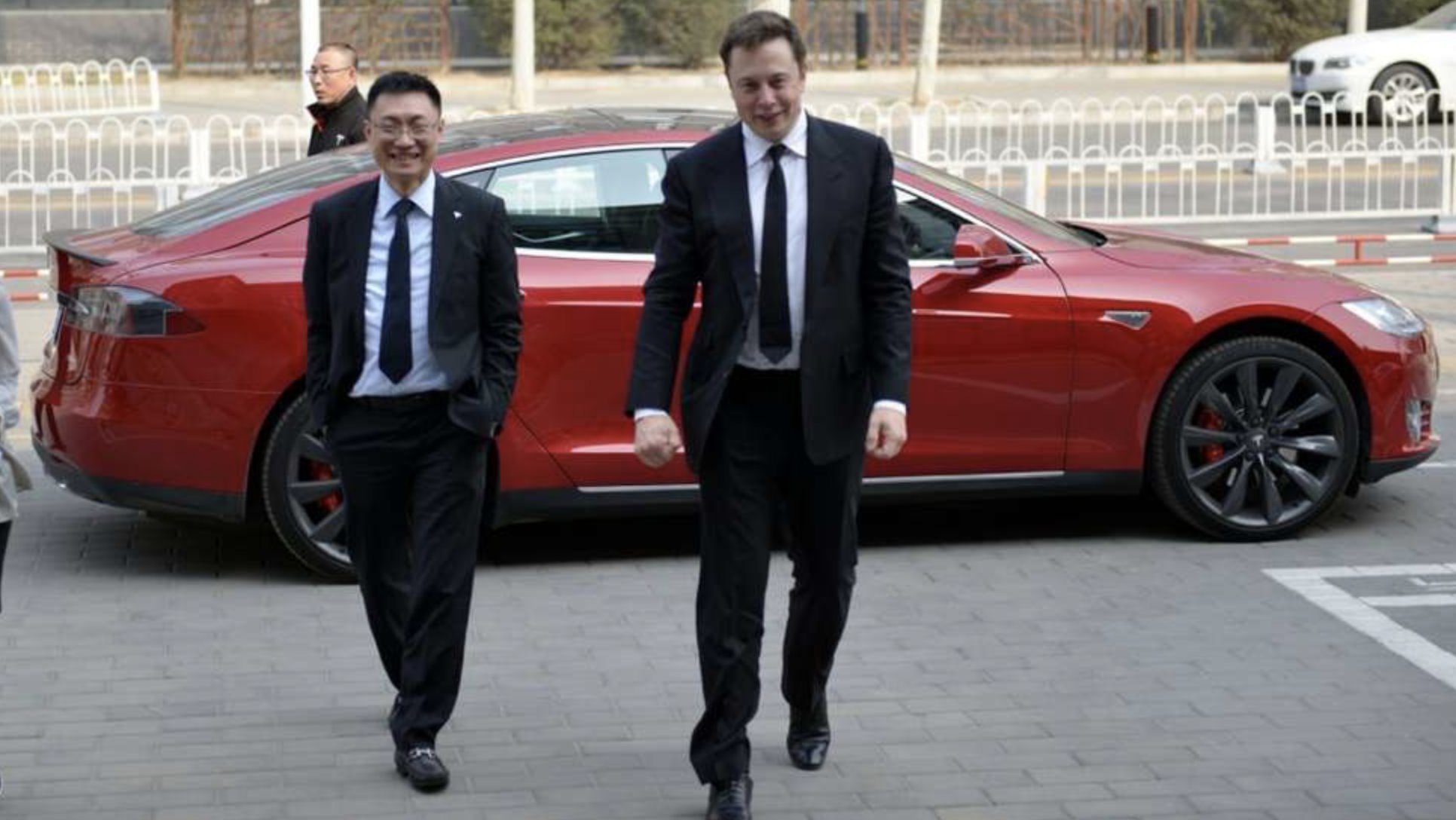
Tesla has granted Senior Vice President of Automotive Tom Zhu more than 520,000 stock options, tying a significant portion of his compensation to the company’s long-term performance.
The generous equity award was disclosed by the electric vehicle maker in a recent regulatory filing.
Tesla secures top talent
According to a Form 4 filing with the U.S. Securities and Exchange Commission, Tom Zhu received 520,021 stock options with an exercise price of $435.80 per share. Since the award will not fully vest until March 5, 2031, Zhu must remain at Tesla for more than five years to realize the award’s full benefit.
Considering that Tesla shares are currently trading at around the $445 to $450 per share level, Zhu will really only see gains in his equity award if Tesla’s stock price sees a notable rise over the years, as noted in a Sina Finance report.
Still, even at today’s prices, Zhu’s stock award is already worth over $230 million. If Tesla reaches the market cap targets set forth in Elon Musk’s 2025 CEO Performance Award, Zhu would become a billionaire from this equity award alone.
Tesla’s problem solver
Zhu joined Tesla in April 2014 and initially led the company’s Supercharger rollout in China. Later that year, he assumed the leadership of Tesla’s China business, where he played a central role in Tesla’s localization efforts, including expanding retail and service networks, and later, overseeing the development of Gigafactory Shanghai.
Zhu’s efforts helped transform China into one of Tesla’s most important markets and production hubs. In 2023, Tesla promoted Zhu to Senior Vice President of Automotive, placing him among the company’s core global executives and expanding his influence beyond China. He has since garnered a reputation as the company’s problem solver, being tapped by Elon Musk to help ramp Giga Texas’s vehicle production.
With this in mind, Tesla’s recent filing seems to suggest that the company is locking in its top talent as it enters its newest, most ambitious era to date. As could be seen in the targets of Elon Musk’s 2025 pay package, Tesla is now aiming to be the world’s largest company by market cap, and it is aiming to achieve production levels that are unheard of. Zhu’s talents would definitely be of use in this stage of the company’s growth.
Investor's Corner
Tesla analyst teases self-driving dominance in new note: ‘It’s not even close’
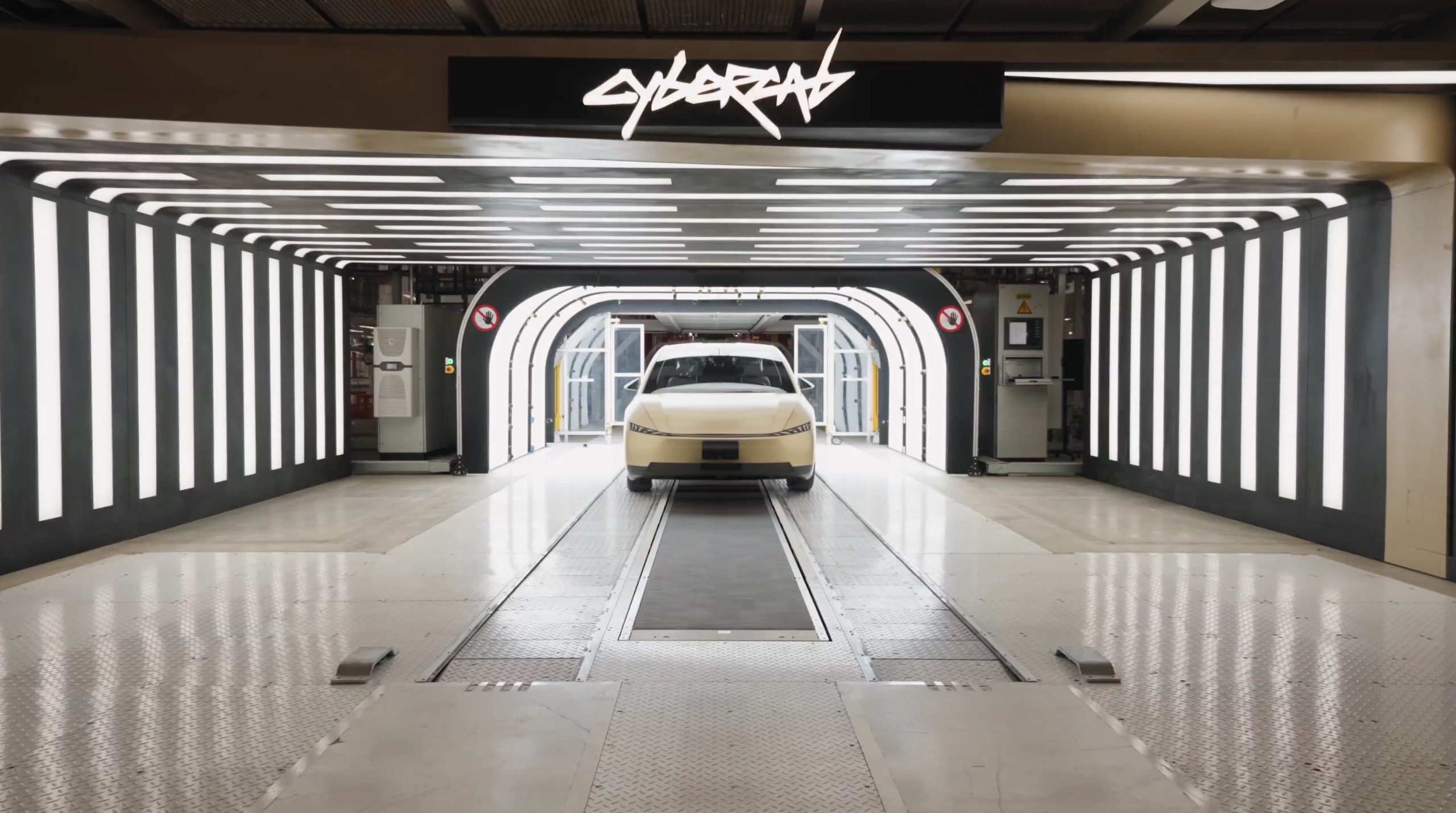
Tesla analyst Andrew Percoco of Morgan Stanley teased the company’s dominance in its self-driving initiative, stating that its lead over competitors is “not even close.”
Percoco recently overtook coverage of Tesla stock from Adam Jonas, who had covered the company at Morgan Stanley for years. Percoco is handling Tesla now that Jonas is covering embodied AI stocks and no longer automotive.
His first move after grabbing coverage was to adjust the price target from $410 to $425, as well as the rating from ‘Overweight’ to ‘Equal Weight.’
Percoco’s new note regarding Tesla highlights the company’s extensive lead in self-driving and autonomy projects, something that it has plenty of competition in, but has established its prowess over the past few years.
He writes:
“It’s not even close. Tesla continues to lead in autonomous driving, even as Nvidia rolls out new technology aimed at helping other automakers build driverless systems.”
Percoco’s main point regarding Tesla’s advantage is the company’s ability to collect large amounts of training data through its massive fleet, as millions of cars are driving throughout the world and gathering millions of miles of vehicle behavior on the road.
This is the main point that Percoco makes regarding Tesla’s lead in the entire autonomy sector: data is King, and Tesla has the most of it.
One big story that has hit the news over the past week is that of NVIDIA and its own self-driving suite, called Alpamayo. NVIDIA launched this open-source AI program last week, but it differs from Tesla’s in a significant fashion, especially from a hardware perspective, as it plans to use a combination of LiDAR, Radar, and Vision (Cameras) to operate.
Percoco said that NVIDIA’s announcement does not impact Morgan Stanley’s long-term opinions on Tesla and its strength or prowess in self-driving.
NVIDIA CEO Jensen Huang commends Tesla’s Elon Musk for early belief
And, for what it’s worth, NVIDIA CEO Jensen Huang even said some remarkable things about Tesla following the launch of Alpamayo:
“I think the Tesla stack is the most advanced autonomous vehicle stack in the world. I’m fairly certain they were already using end-to-end AI. Whether their AI did reasoning or not is somewhat secondary to that first part.”
Percoco reiterated both the $425 price target and the ‘Equal Weight’ rating on Tesla shares.
Investor's Corner
Tesla price target boost from its biggest bear is 95% below its current level
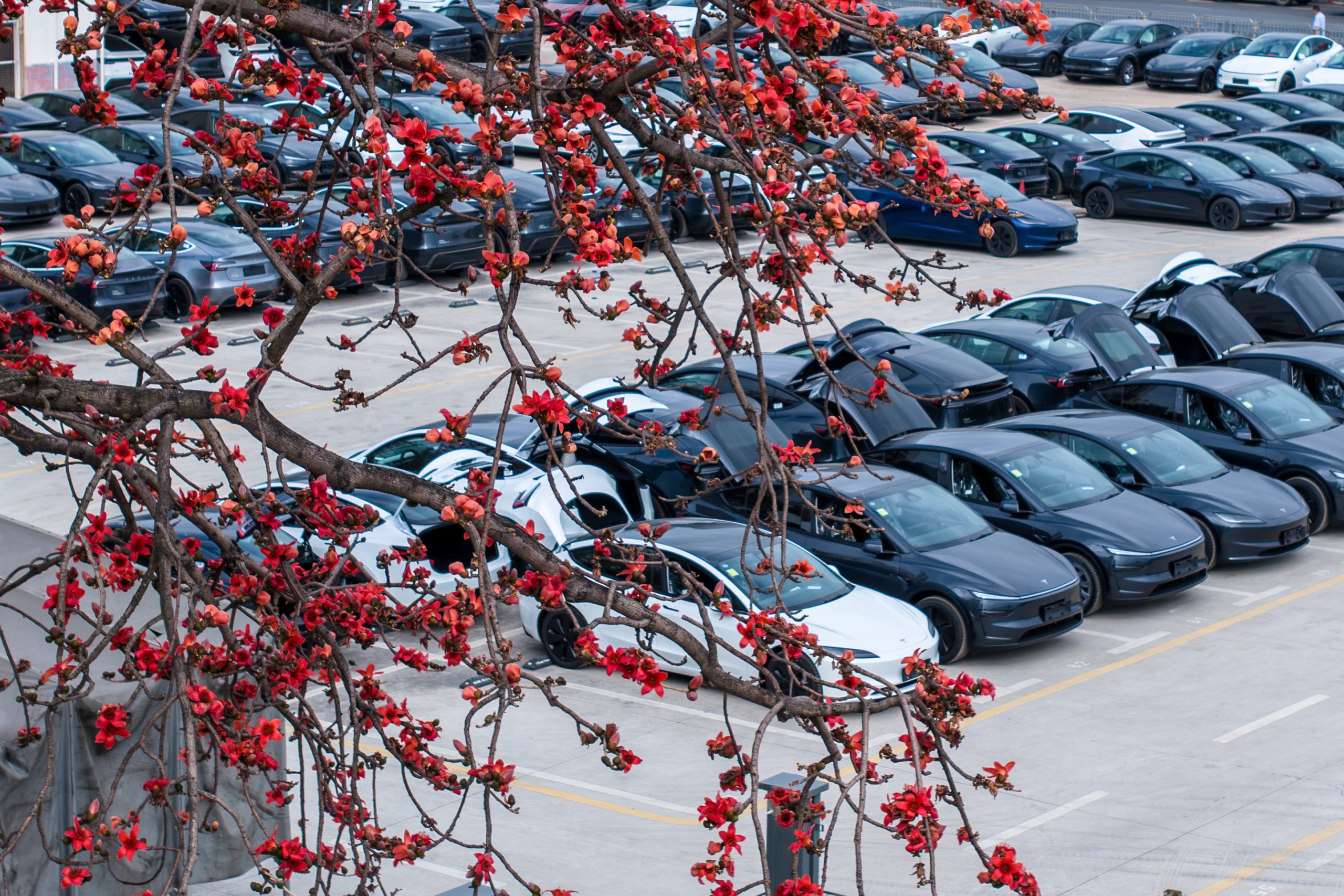
Tesla stock (NASDAQ: TSLA) just got a price target boost from its biggest bear, Gordon Johnson of GLJ Research, who raised his expected trading level to one that is 95 percent lower than its current trading level.
Johnson pushed his Tesla price target from $19.05 to $25.28 on Wednesday, while maintaining the ‘Sell’ rating that has been present on the stock for a long time. GLJ has largely been recognized as the biggest skeptic of Elon Musk’s company, being particularly critical of the automotive side of things.
Tesla has routinely been called out by Johnson for negative delivery growth, what he calls “weakening demand,” and price cuts that have occurred in past years, all pointing to them as desperate measures to sell its cars.
Johnson has also said that Tesla is extremely overvalued and is too reliant on regulatory credits for profitability. Other analysts on the bullish side recognize Tesla as a company that is bigger than just its automotive side.
Many believe it is a leader in autonomous driving, like Dan Ives of Wedbush, who believes Tesla will have a widely successful 2026, especially if it can come through on its targets and schedules for Robotaxi and Cybercab.
Justifying the price target this week, Johnson said that the revised valuation is based on “reality rather than narrative.” Tesla has been noted by other analysts and financial experts as a stock that trades on narrative, something Johnson obviously disagrees with.
Dan Nathan, a notorious skeptic of the stock, turned bullish late last year, recognizing the company’s shares trade on “technicals and sentiment.” He said, “From a trading perspective, it looks very interesting.”
Tesla bear turns bullish for two reasons as stock continues boost
Johnson has remained very consistent with this sentiment regarding Tesla and his beliefs regarding its true valuation, and has never shied away from putting his true thoughts out there.
Tesla shares closed at $431.40 today, about 95 percent above where Johnson’s new price target lies.








